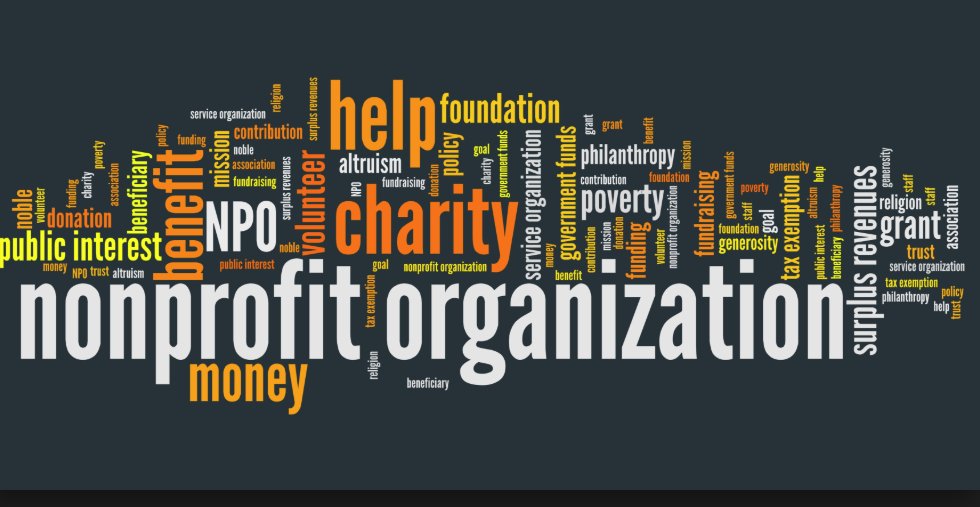Nonprofit Firm: Comprehensive Solutions to Support Charities and Organizations
Checking Out the Diverse Features and Responsibilities of a Nonprofit Company in Attending To Social Issues and Promoting Modification
Nonprofit companies function as essential representatives of adjustment within culture, tackling a myriad of social issues with multifaceted strategies. Their responsibilities prolong past simple service stipulation; they involve in advocacy, source mobilization, and community outreach, often serving as a bridge in between marginalized populaces and important solutions. By fostering cooperations and utilizing culturally appropriate approaches, these companies resolve the root causes of social difficulties. Yet, the intricacies of their duties raise important inquiries about performance and sustainability. What are the ramifications of these varied features on long-lasting area effect?
Recognizing Nonprofit Company Functions
The effectiveness of nonprofit companies pivots on a clear understanding of their diverse roles within culture. Not-for-profit agencies usually operate as service carriers, delivering crucial programs and sources to underserved populations.
In addition, nonprofits play an essential duty in campaigning for, raising awareness and affecting plan choices that affect their areas. By involving in research study and public education, these companies assist shape public discussion and advertise educated decision-making - nonprofit agency. They also work as systems for volunteerism, setting in motion community members to add their time and skills towards collective goals
Furthermore, nonprofit companies typically work as conveners, uniting varied stakeholders to promote cooperation and cumulative effect. This collective method enhances their ability to resolve facility social concerns effectively. Recognizing these multifaceted roles is crucial for maximizing the potential of not-for-profit agencies in producing sustainable social adjustment and enhancing total area wellness.
Neighborhood Engagement and Outreach
Effective neighborhood involvement and outreach are basic components of nonprofit firms' approaches to construct and cultivate connections depend on within the neighborhoods they offer. These initiatives focus on understanding area needs, advertising awareness of offered sources, and encouraging participation in programs created to resolve social problems. Nonprofit organizations utilize a selection of techniques to involve with area members, such as workshops, informational sessions, and collaborative events.
Outreach campaigns serve to reinforce connections with diverse populaces, specifically marginalized teams that may encounter barriers to access. By using culturally pertinent interaction techniques and leveraging regional partnerships, nonprofits can improve their visibility and show their dedication to community empowerment. This approach not only cultivates a feeling of belonging yet likewise increases the chance of sustained involvement.
Furthermore, effective community interaction surpasses mere engagement; it includes actively paying attention to area members' feedback and including their insights right into program development. This joint procedure makes sure that the services offered are responsive, pertinent, and customized to the special difficulties encountered by the community. Inevitably, promoting solid links via interaction and outreach can result in even more impactful treatments and a better collective initiative towards advertising favorable social adjustment.
Advocacy and Policy Influence
Advocacy functions as an important system for nonprofit firms to affect public law and drive systemic adjustment. By leveraging their expertise and area insights, these organizations can properly stand for marginalized populations and address pressing social issues. Nonprofits involve in advocacy with various strategies, including public understanding campaigns, grassroots mobilization, coalition building, and straight lobbying of policymakers.
With these efforts, not-for-profit agencies aim to shape regulation and plan frameworks that align check my site with their mission and the demands of the communities they offer. They conduct research study, collect information, and share engaging narratives to highlight the seriousness of certain issues, guaranteeing that decision-makers are notified and motivated to act. This process not just enhances the voices of those affected by social oppressions but also cultivates a more equitable and comprehensive policymaking environment.
Additionally, campaigning for efforts often look for to develop long-term architectural changes, attending to origin rather than merely alleviating symptoms. By prioritizing policy impact, not-for-profit companies add to a broader understanding of social obstacles and advertise options that can lead to lasting renovations in societal wellness. Eventually, advocacy is basic to the transformative function nonprofits play in developing a simply and fair society.
Fundraising and Source Monitoring
Nonprofit agencies depend on durable fundraising and resource monitoring methods to sustain their campaigning for initiatives and maintain their goals. By using a multi-faceted approach, nonprofits can minimize the dangers associated with dependence on a single financing source.
Source administration is similarly vital, as it involves the strategic allotment of both human and financial resources to make best use of impact. Nonprofits should establish budget plans that line up with their goals while guaranteeing transparency and responsibility to stakeholders. This includes regular monitoring of expenditures and adjusting techniques as needed to maximize source usage.

Cooperation and Partnerships
While many companies pursue their goals individually, cooperation and collaborations can considerably boost the effectiveness of not-for-profit companies. By collaborating with various other nonprofits, federal government entities, and economic sector companies, nonprofits can merge resources, share know-how, and amplify their effect on social concerns. Joint efforts frequently bring about ingenious services that might not be achievable independently, leveraging the staminas of each companion to attend to complex obstacles.

Eventually, efficient partnership needs clear communication, shared goals, and mutual respect among partners. By accepting a participating approach, nonprofit companies can create sustainable networks that not just address immediate social problems yet additionally add to long-lasting systemic change, fostering a more fair culture. Via collaboration, nonprofits can grow and maximize their capacity for purposeful impact.
Conclusion
Nonprofit firms serve as essential entities in fostering and resolving social issues change within neighborhoods. Through diverse features such as community source, advocacy, and engagement management, these companies properly set in motion resources and assistance for underserved populaces. Their collective efforts with numerous stakeholders boost the capacity to affect public law and promote architectural changes. Inevitably, the diverse roles of not-for-profit agencies substantially add to the pursuit of social justice and the improvement of area well-being.
Recognizing these multifaceted functions is critical for maximizing the capacity of not-for-profit agencies in developing lasting social modification and improving total neighborhood wellness.
Efficient area involvement and outreach are basic parts of not-for-profit firms' strategies to construct and foster connections count on within the communities they offer. By working with each other with various other nonprofits, federal government entities, and exclusive market organizations, nonprofits can merge sources, share experience, and intensify their impact on social issues.Not-for-profit companies serve as essential entities in cultivating and dealing with social issues modification within communities - nonprofit agency. Ultimately, the complex functions of nonprofit firms substantially contribute to the quest of social justice and see this site the improvement of neighborhood wellness